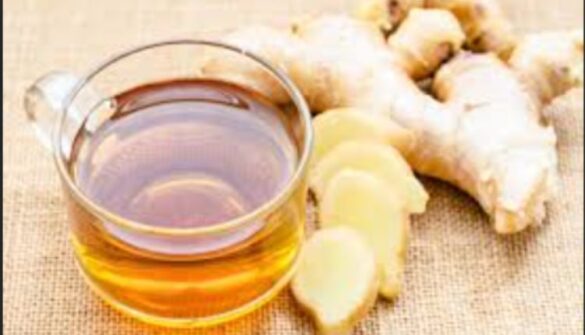Ginger is a spice that has been cherished for centuries for its unique flavor and numerous health benefits. Widely used in various cuisines around the world, it has become a staple in many kitchens. In this article, we will delve into the advantages of using ginger, how it can enhance your culinary creations, and where you can find high-quality ginger and other spices.
Health Benefits of Ginger
Ginger زنجبيل is celebrated not only for its distinctive taste but also for its impressive health benefits. Traditionally used in medicine for hundreds of years, ginger offers a range of advantages, such as:
– Anti-inflammatory Properties: Ginger contains potent compounds that have anti-inflammatory effects, which can help reduce pain and swelling.
– Digestive Aid: Known for improving digestion, ginger can alleviate gastrointestinal discomfort and promote a healthy digestive system.
– Immune System Support: Regular consumption of ginger can boost the immune system, aiding in the fight against infections.
– Anti-nausea: Effective in reducing nausea and vomiting, ginger is a popular remedy for morning sickness and motion sickness.
– Antioxidant Effects: Ginger is rich in antioxidants, which help protect the body from damage caused by free radicals.
– Cardiovascular Health: Some studies suggest that ginger may help lower cholesterol levels and improve heart health.
– Anti-cancer Properties: Preliminary research indicates that ginger may have anti-cancer properties, potentially inhibiting the growth of cancer cells.
Culinary Uses of Ginger
Ginger’s unique flavor profile makes it a popular ingredient in a variety of dishes. Here are some ways you can incorporate ginger into your cooking:
– Stir-fries: Add grated or finely chopped ginger to your stir-fries to enhance their flavor with a zesty kick.
– Soups and Stews: Ginger can significantly improve the taste of soups and stews. Add a few slices during cooking for a warm, spicy flavor.
– Baked Goods: A key ingredient in many baked goods, ginger is essential for making gingerbread cookies, cakes, and other treats.
– Beverages: Fresh ginger can be used to make tea or added to smoothies and juices for an invigorating taste.
– Marinades and Sauces: Incorporate ginger into marinades and sauces to add depth and complexity to your dishes.
– Salads: Grated ginger can be a refreshing addition to salads, providing a burst of flavor and a health boost.
– Desserts: Ginger can be used to add a spicy sweetness to desserts, such as ginger ice cream or candied ginger.
Ginger in Traditional Medicine
Ginger has a long history of use in traditional medicine across various cultures. It has been used to treat ailments such as colds, arthritis, migraines, and hypertension. In Ayurvedic medicine, ginger is considered a universal remedy and is often used to balance the body’s energies.
Modern Research on Ginger
Modern scientific research continues to uncover new health benefits of ginger. Studies have shown that ginger can help reduce menstrual pain, improve brain function, and protect against age-related damage. Researchers are also exploring ginger’s potential in managing diabetes and improving metabolic health.
Conclusion
In conclusion, ginger (زنجبيل) is a versatile spice that offers numerous health benefits and can enhance the flavor of your dishes. Its anti-inflammatory, digestive, and immune-boosting properties make it a valuable addition to any diet. By incorporating ginger into your cooking, you can enjoy its unique taste and health-promoting benefits. Remember to source your ginger and other spices (بهارات) from reputable suppliers to ensure the best quality and maximum benefits. Ginger’s rich history in traditional medicine and its growing list of scientifically proven health benefits make it a truly remarkable spice that deserves a place in your kitchen.

